All about feeding blueberries
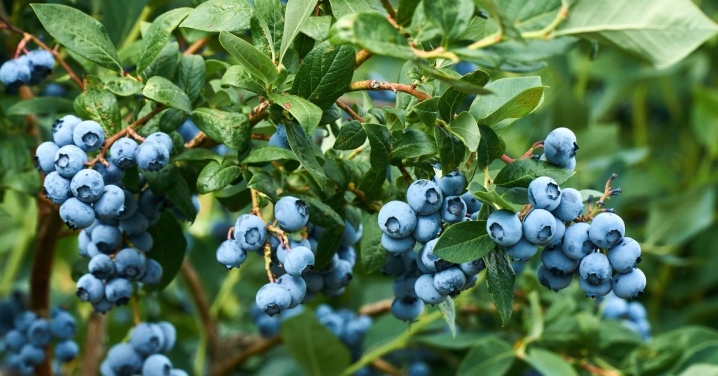
Many gardeners like to plant new berry bushes and fruit trees on their plots that they have not previously dealt with. Recently, blueberries have been gaining popularity. More and more gardeners want to see her on their plots. But for this you need to know how to properly care for blueberries, and especially about its feeding.

Why is this needed?
Blueberries are quite whimsical garden crops that require additional nutrients and trace elements. Although there are gardeners who believe that any plant can take all the necessary substances from the soil. In fact, not every soil is fully rich in all trace elements that a plant needs, in particular blueberries. In addition, each season the plant requires additional nutrients, so fertilization is imperative. The advantages of the fertilization procedure are as follows:
- the plant receives everything it needs for growth and development, looks healthy and beautiful;
- thanks to nutrition, you can get a good harvest, accelerate its ripening and improve the taste of berries;
- timely and correct feeding increases the immunity of the plant, which allows it to resist various diseases and pests.
There can be only one drawback - an excess of fertilizing. You have to be careful with this. An increased amount of nutrients can lead to the opposite result, so it is very important to know at what time and how to feed the plant.
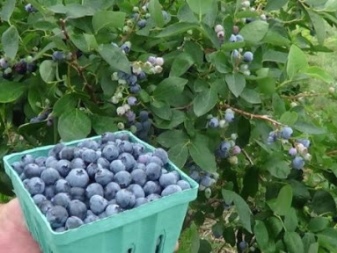
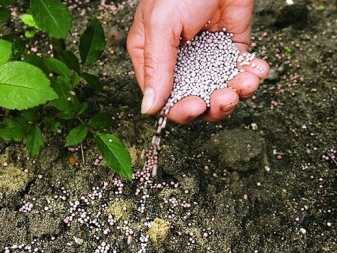
Signs of a lack of nutrition
The main ingredients that are necessary for successful development and a good harvest of blueberries are phosphorus, nitrogen and potassium. Fertilizers can be applied at a specific graphics, but you can only when the plant really needs in that.
Moreover, some elements may be contained in excess in the soil, or, conversely, their deficiency may be observed. The plant will signal both a lack of nutrition and an excess of it.
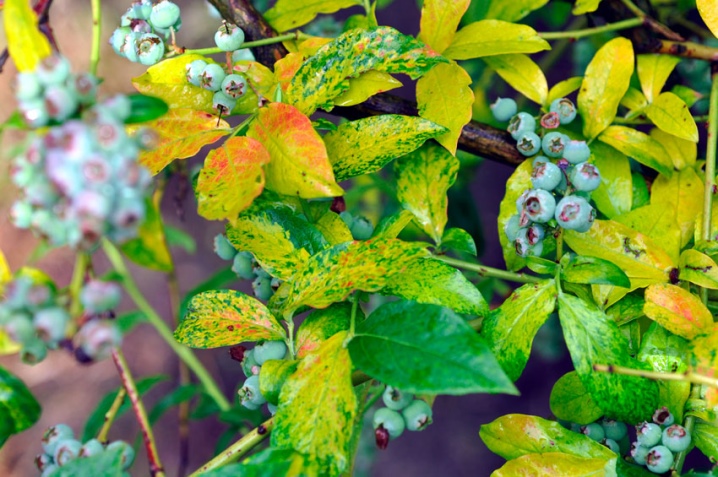
Some signs of the appearance of garden blueberries will tell you what the problem is.
- If the bush grows very slowly, the berries ripen poorly and there are few of them, the leaves at the edges turn yellow and dry out, then there is clearly not enough blueberries nitrogen. However, you need to be careful with the application of this fertilizer at the end of the season, as its overabundance will lead to a sharp increase in new shoots. Before the onset of cold weather, this is useless, they can simply freeze.
- If the bush looks weakened and withers, the harvest is poor, and the fruits are not tasty, this indicates that there are not enough blueberries. potassium and phosphorus... If the plant lacks them badly, it can wither completely. But an overabundance of the same substances can cause decay of the roots.
- If there are very few berries or the bush does not bear fruit at all, additional feeding is required in the form magnesium, calcium and sulfur.
- Carefully apply manganese, copper, boron, sodium. These substances are already present in the required amount in the soil. If, for example, the plant does not have enough boron, new leaves will stop growing, and the existing ones will acquire a bluish tint around the edges. The lack of a sufficient amount of manganese will make itself felt with yellow leaves and their falling off.
- With a shortage sulfur leaves become covered with white or pale yellow spots, then they can turn completely white.
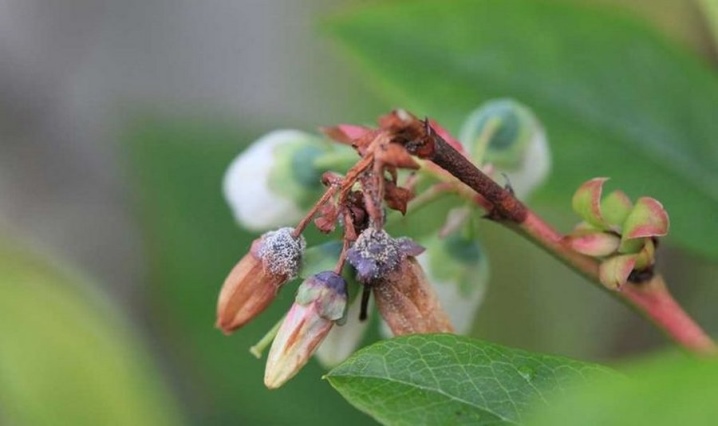
Fertilizers
For most plants use organic and mineral fertilizers... But there are exceptions when not all feeding is suitable.Blueberries are one of these crops. Compost, ash, manure, chicken droppings can be detrimental to this berry., since all these substances reduce the acidity of the soil, and this does not allow it to assimilate nutrients. The only thing that can be used from organic matter is high moor peat. It can be replaced with pine litter.
But mineral fertilizers blueberries will take very well. And here There are three types of fertilizers that this crop needs.
- Nitrogen-containing... These fertilizers include various options for nitrate, urea, ammonium sulfate.
- Potash. Usually potassium sulfate is used as such a top dressing.
- Phosphoric. Most often, summer residents use superphosphate.
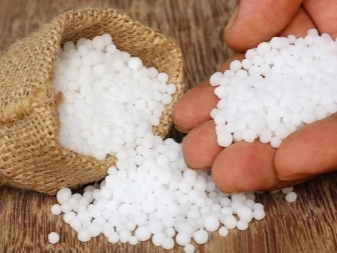
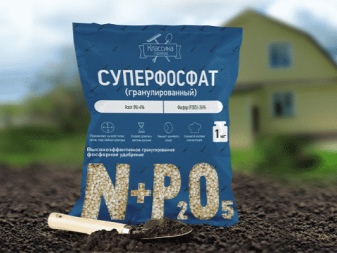
But in most cases it is convenient to use complex fertilizers, which contain several useful components at once. This is very convenient as there are many options specifically designed for specific plant species.
Because blueberries prefers acidic soil, many gardeners solve this problem with the usual citric acid. To do this, you need to dilute 2 tablespoons of the powder in 6 liters of water, leave for about an hour and you can water the bushes. It is recommended to make a solution with citric acid in a plastic bucket.
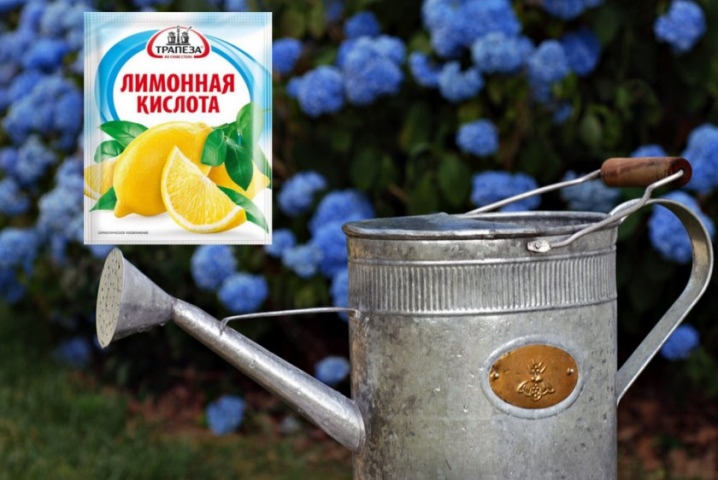
Time
At different periods of development, blueberries require certain fertilizers., which will help to develop correctly, ripen the harvest and leave the plant prepared in the winter.
In the spring
Nitrogen - a vital component for growth and development. Therefore, as soon as sap flow begins, the plant needs to be fed with nitrogen. Then repeat feeding again in spring and early summer.
As soon as the buds begin to bloom, blueberries need in potassium and phosphorus. Potassium helps to strengthen immunity and cope with diseases, while phosphorus works for the future. Thanks to the timely application of this fertilizer, there is a chance to achieve a high yield.
When the berries ripen in summer, blueberries will also need potassium... In addition, you can use complex supplements that contain magnesium, calcium, copper, sodium.
It is very important not to overfeed the plant in order not to get the opposite effect. Therefore, you can fertilize the plant with potassium once, and another time choose a complex option.
This will be enough for a healthy plant in the summer. But if problems are outlined and the plant does not look the best way, then you need to navigate the situation.
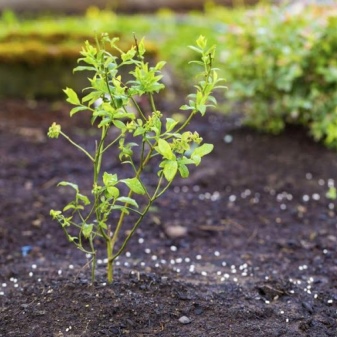
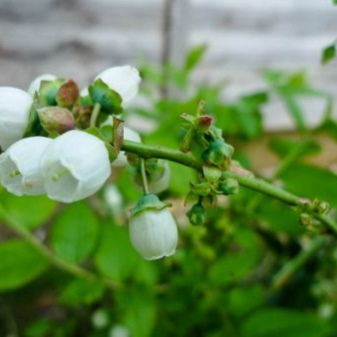
In autumn
After harvesting, berry bushes need rest, preparation for the next season. And fertilizers will help with this, too. For the winter, the plant is prepared using magnesium and zinc, this will help the blueberries regain their strength.
To prevent the bushes from freezing on cold winter days, in late autumn (but before the onset of the first frost), you need to add to the soil potash fertilizers.
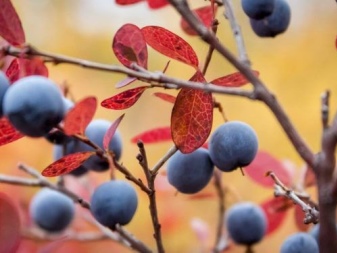
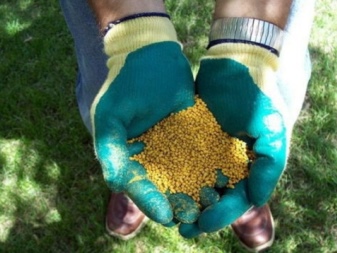
When feeding plants, you need to focus on the climatic conditions of your region. If in the southern regions spring makes itself felt with might and main already in March, then in the northern regions frosts may occur even in May.
That's why fertilization schedule may not be the same for everyone.
Manufacturers
Many fertilizers that are used by our gardeners are made in Russia. Among them, there are many options that just include all the components necessary for blueberries. Some of them can be noted.
- "Good power" is a liquid fertilizer that contains not only nitrogen, phosphorus and potassium, but also other trace elements and vitamins. Succinic acid is also present, which stimulates plant growth. You can use this fertilizer for a long time, because one bottle is enough for 100 buckets of water.
- "Bona Forte" is produced in the form of granules that dissolve in the soil, thereby gradually giving it useful substances. The fertilizer, in addition to the main components required by blueberries, contains magnesium, which has a beneficial effect on the health of the roots, helps in the formation of fruits.

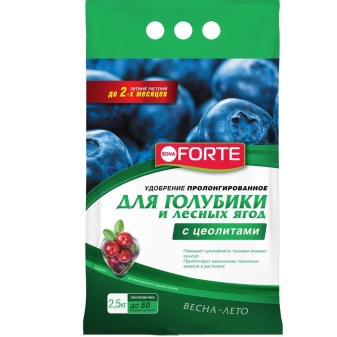
There are options that have demonstrated their best qualities, the manufacturer of which is Poland.
- Target Obfite Plony is a granule that contains phosphorus, potassium and nitrogen, which helps the bushes to grow healthy, and the berries to be large and sweet. Usually, the granules are dissolved in water, in proportions of 1 gram per 1 liter.
- Florovit Another popular fertilizer that has a beneficial effect on the growth and formation of fruits. Fertilizer oxidizes the soil very well, which is what blueberries need.
The main advantage of this type of fertilizer is the complete absence of nitrates.

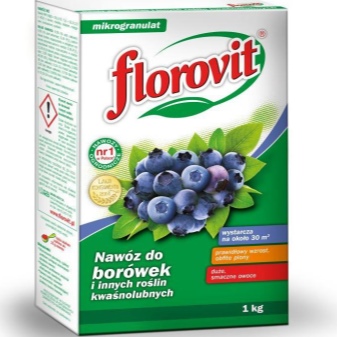
Feeding methods and rules
It is important not only to supply the bushes with all the necessary nutrients, but also to do it right. And for this you need to do this in a timely manner and in the correct proportions. Even if it so happened that the necessary information disappeared from memory, the package always contains annotation, which will help you not to be mistaken in the correct application. The basic rules are simple:
- you can add powder or granules directly to the soil, slightly digging up the soil around the bush, but before that, the blueberries need to be watered;
- the same powder or granules can be diluted with water and water the plant, as well as, if necessary, treat the leaves by spraying;
- liquid concentrated solutions are also dissolved in water according to the instructions;
- feeding is carried out early in the morning or late in the evening, when direct sunlight does not hit the plants, it is possible in cloudy weather, but without rain.
Foliar dressing can be used in addition to root dressing, but does not completely replace it. Blueberries get all their nutrients from the soil, so root feeding is extremely important.
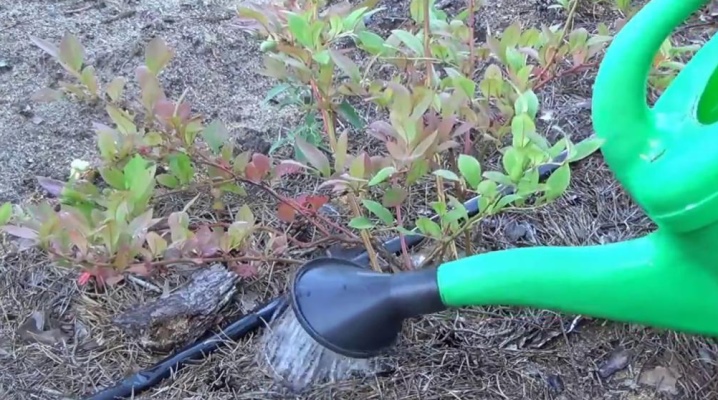
Expert advice
Experienced gardeners recommend laying fertilizers when planting a plant. For this, the necessary components are laid in the planting pit, after mixing with the soil.
- If necessary, blueberries can be fertilized with products intended for hydrangeas and azaleas, the requirements of these plants are similar.
- Annual plants do not need as much fertilizing as mature bushes. You can pay special attention to feeding in the second year of life. You should be especially careful about this process when the plants are more than five years old.
- If blueberries are mulched with sawdust, it is recommended to double the amount of nitrogen fertilizers.
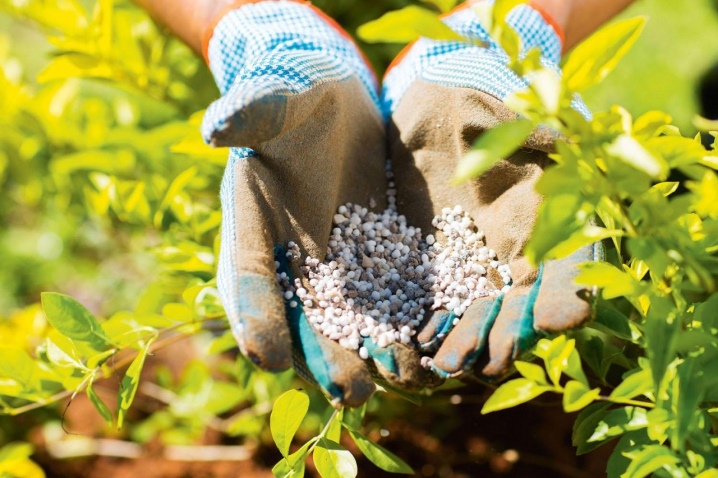
It should be noted that folk remedies are not always good for this berry. You can limit yourself to only citric acid. Eggshells, wood ash, lime and herbal infusions will not work.
For information on how to feed blueberries, see the next video.













The comment was sent successfully.